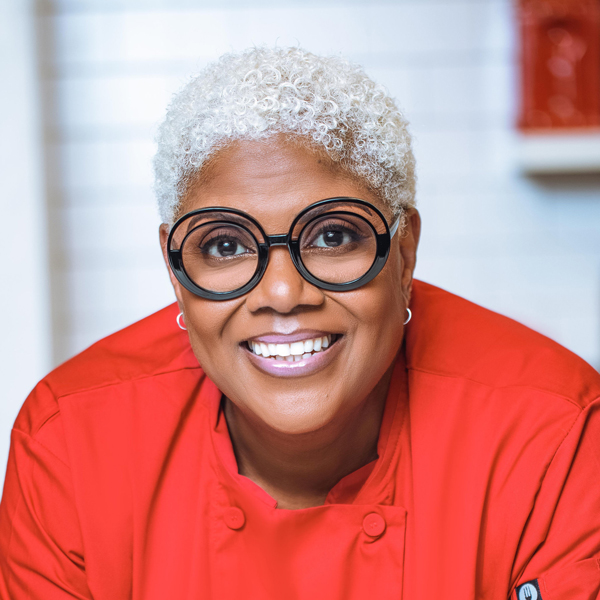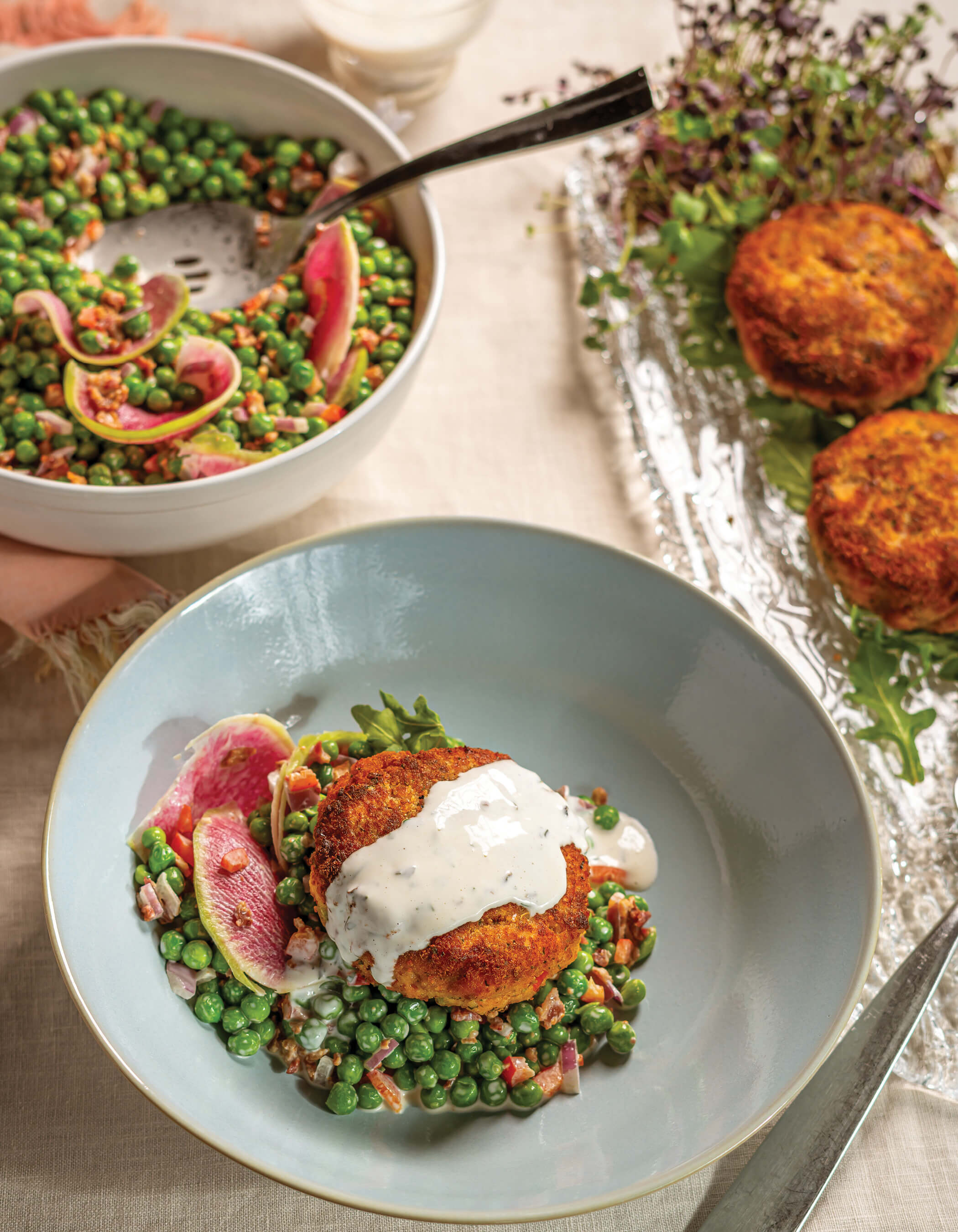
Known as one of the South’s most recognized culinary personalities, Chef Deborah VanTrece is a best-selling author and founder of the VanTrece Hospitality Group. Her awardwinning soul food restaurant, Twisted Soul Cookhouse & Pours, is based in Atlanta, where she also has two new restaurants opening. Deborah is a leading Black restaurateur, businesswoman and proud member of the LGBTQIA+ community.
 Deborah VanTrece's Salmon Croquette Recipe
Deborah VanTrece's Salmon Croquette RecipeQ: Before attending culinary school, you had a career as a flight attendant. How did this experience shape the development of your personal cuisine style?
My travels around the world had a tremendous impact on my approach to cooking. I've always felt that the best way to experience a place and a culture is through its food. My menus always incorporate different foods and ingredients from around the globe. At Twisted Soul, I created what I call "modern global soul food." So while you may see soul food staples like southern fried chicken and collard greens on the menu, I also incorporate dishes with influences from Asia, Europe, Latin America and more. Not only have my travels influenced my cooking style, it's also been a driver in my business overall. I lived in Italy for two years, and I love creating dishes with a spin on Italian classics. In May 2023, I opened an Italian restaurant, La Panarda, in Atlanta's historic Cascade Heights neighborhood.
Q: You’ve often been very intentional in calling your cuisine “soul food with global influences." What does soul food mean to you? How may soul food differ from Southern cuisine?
Soul food and southern food are often used interchangeably, but they're different things. Soul food definitely has its roots here in the South. What we traditionally call "soul food" is directly descended from enslaved people. Slaves were often given food scraps to eat, and they created things like hogshead cheese and collards out of necessity to survive. If you look at a menu for almost any southern restaurant, you'll see dishes that are taken directly from traditional African-American soul food. It gets muddled, but we know the origin of those dishes and the creativity of those dishes originated from the hands of enslaved people. I've always wanted to shine a light on our food traditions while getting recognition for the influence that soul food has had on contemporary American cuisine.
Q: How has your identity as both a Black woman and a member of the LGBTQ+ community impacted your experience in culinary arts and the restaurant industry?
There is an extra level of challenges in the culinary industry if you're a woman, let alone a black woman who is a part of the LGBTQ community. That's something that other chefs don't have to deal with as they were establishing themselves in the industry. I've had to work harder and fight to earn my dues, and even then I wasn't on a level playing field with my white counterparts. While that experience could have broken me, in the end, it made me stronger, because I fought through that adversity. Resilience and tenacity are two qualities that have served me well throughout the years. Hopefully, my journey will make it a little easier for other young, Black chefs who have high ambition and talent. It is a reason why mentorship has always been vitally important to me.
Q: You’ve made it a core tenet of your work to create space and opportunities for other chefs of historically underrepresented backgrounds. How do you do this? What advice do you have for those looking to get into the restaurant business or culinary arts industry?
At this point in my career, mentorship and helping female chefs and chefs of color is vitally important to me. I own three restaurants and a catering/special events company as part of the VanTrece Hospitality Group, and more than anything, it has allowed me to be able to recognize and nurture talent as well as give young chefs opportunities to showcase that talent. Not everyone has to follow the traditional path of going to culinary school. If you think you want to make a career in the culinary industry, befriend a local chef and maybe get a restaurant job in the front and back of house. That way you can learn how a restaurant works and see if it's the right path for you.
Q: June is both Pride month for the LGBTQ+ community and also the month where Juneteenth is observed. Do you have any traditions you partake in to observe Juneteenth and Pride month? Are there any special foods you make or eat in doing so?
Typically we have special menus and events at my restaurants to celebrate Pride and Juneteenth. They are certainly two holidays that I really love to celebrate in festive ways. For Juneteenth, I like to celebrate the month with fish fry events. It's something I've been doing at Twisted Soul every year and it's very popular. And of course, we love to have some red drinks on the menu. My daughter, Kursten, had one of her drinks featured in Essence Magazine in the June issue, which was exciting. The entire family loves celebrating Pride and Juneteenth.
Q: Do you have any kitchen “hacks” or special techniques you can share with us?
I have so many different techniques and kitchen secrets that I've perfected over the years. There are two that I think would be most useful for at-home cooks. The first is helpful in reducing food waste. If you have fresh herbs that are going bad, simply put them in ice cube trays and add water or oil to preserve them. When you’re ready for use, just pop a few out and add them directly to the pot, pan or bowl. The other tip is to microwave a lemon or lime for a few seconds before juicing to get more juice out of it.
